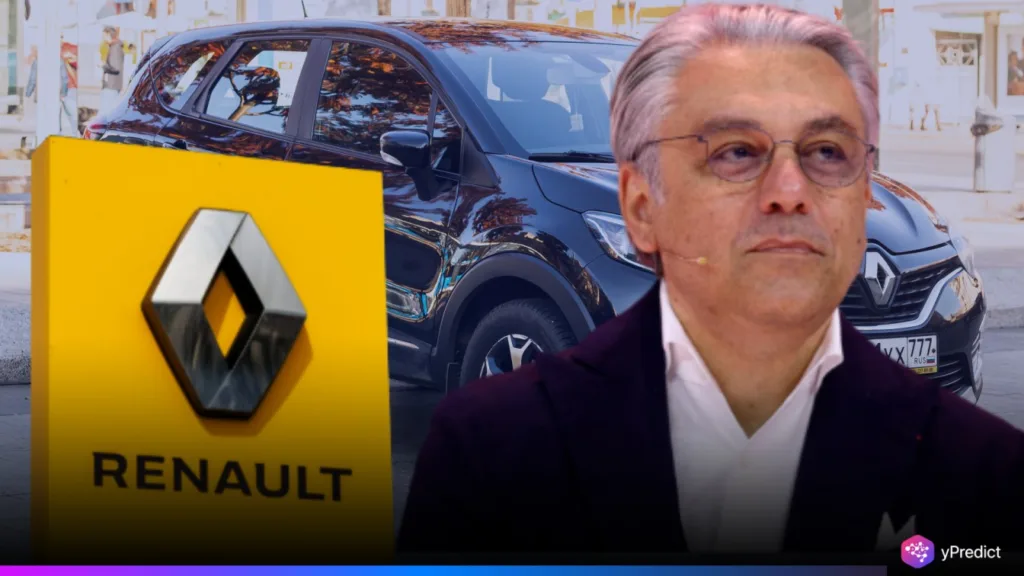
Renault is facing one of the most difficult market days in recent times. This was Renault’s largest one-day fall since the March 2020 COVID-19 tumble. The stock came under pressure following a surprise double whammy of reducing its 2025 financial targets and the announcement that Luca De Meo, Chief Executive Officer, had resigned. Renault’s downgraded guidance, increasing Chinese competition, and developing concerns from investors led to a strong market reaction and began a market focus on Renault’s future direction.
Forecast Slashed Ahead of Key Results
Renault has slashed 2025 operational margin guidance from 7% to 6.5%, while cutting its free cash flow guidance from €2 billion to just €1–1.5 billion. Deutsche Bank responded by updating its price target on Renault stock from €55 to €47. Moreover, JPMorgan analyst also flagged that weakness in European demand and increasing competition from emerging Chinese makers were two of the concerns impacting the outlook for Renault’s share value when compared to its European rivals.
Despite the incursion of the European market by emerging Chinese electric vehicle (EV) makers, prompting more pricing pressures on legacy makers like Renault. These makers will be forced to rethink their production and pricing strategies as they contend with increasing costs associated with innovation and shifting consumer demand preferences.
CEO Transition Adds Uncertainty
As if the situation wasn’t already tumultuous, Luca de Meo has stepped down as CEO after five years of leading Renault and is set to become CEO of luxury fashion house Kering in a surprising crossover between industries. The Board has appointed interim CEO Duncan Minto, the current CFO of Ampere, Renault’s EV and software unit, to steer the company through uncertain waters.
The unexpected transition in the top post is further fanning speculation about internal disagreements or a saintly separation of corporate objectives. A 2022 study from the Harvard Business Review found that almost 30 percent of CEO exits are the result of disputes behind the scenes, which only adds to investor concerns. The timing of Renault’s leadership shakeup is also awkward as the group is facing high levels of investment in AI-powered automotive software, autonomy, and EVS as it tries to chart its future.
AI-Focused Restructuring Faces Strain
Under de Meo’s oversight, Renault initiated plans to separate its EV and AI-motivated software efforts into the Ampere unit, with the goal of simplification and raising new money for future mobility technologies. The lower cash flow outlook now raises questions about whether Renault can achieve those ambitions based on a definition that does not involve compromising margins.
The automotive industry as a whole is racing to implement AI from driver assistance to compliance with legislation permitting full autonomy. Renault’s leadership and financial volatility might contribute to the slowest technological arms race in automotive history. Analysts warn that any disruption to Renault’s AI investment cycle may result in a significant strategic lag, especially in a market where software-defined vehicles are fast becoming the norm.
Investor Confidence Wavers
The market’s response was sharp and punishing. While many would agree that Renault’s revival from the pandemic under de Meo’s leadership had taken shape, the Board’s approval of his replacement has renewed uncertainty about their long-term vision and sustained alignment at the Executive level.
A confluence of lowered financial targets, a disruptive CEO transition, along with increased competition from China, puts Renault in a precarious position. With investor sentiment now shaken, the hard work begins for the Board of Renault and incoming leadership to recommit to a path that affirms their AI-first vision and create a route forward in a market that is speed, scale, and software-driven.





